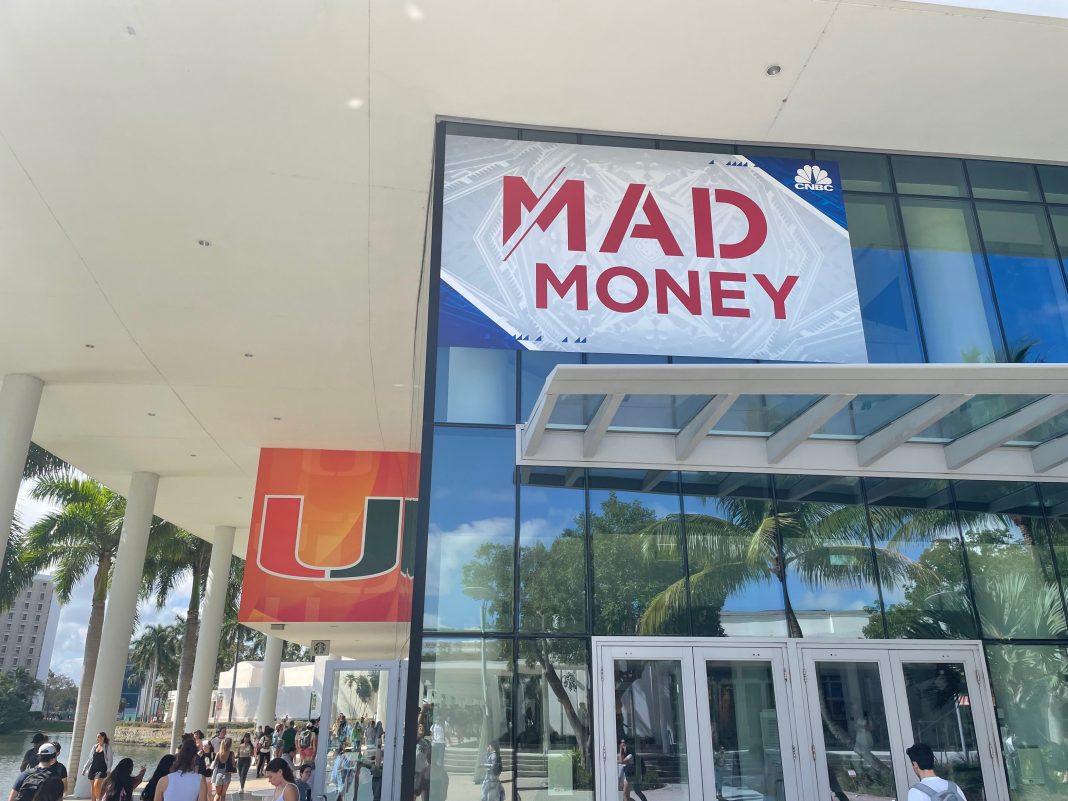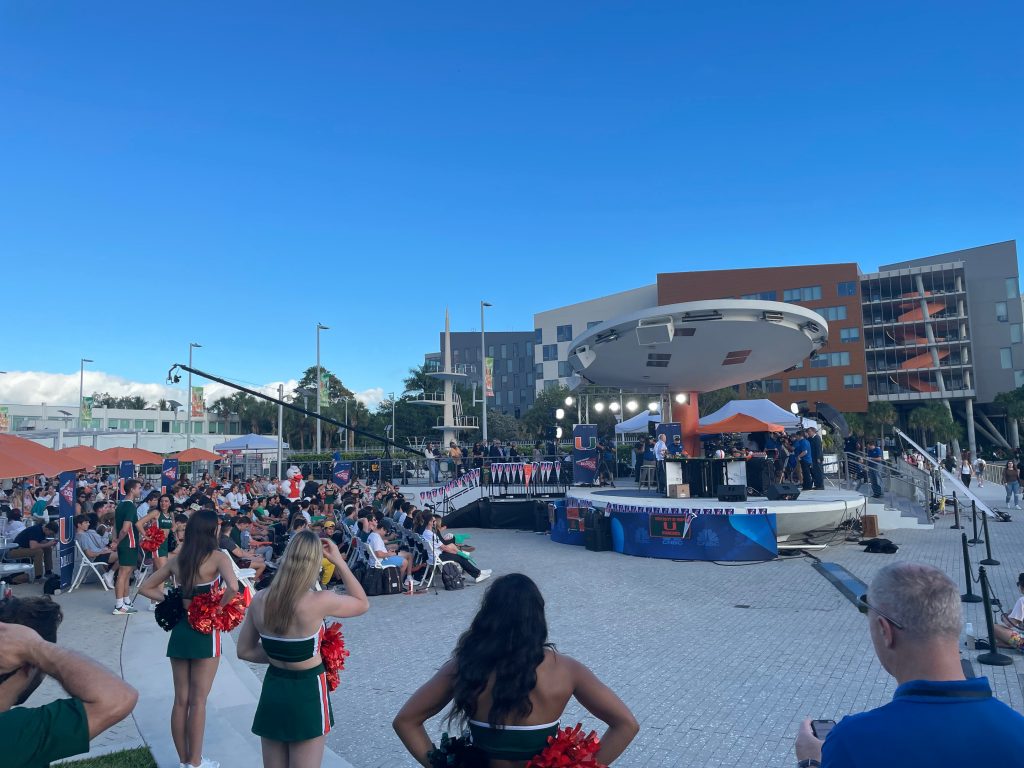
Add Jim Cramer to the ensemble of people that have thrown up the ‘U.’ Appearing on campus to record an episode of his hit show “Mad Money” this past Thursday, Feb. 2, Cramer was greeted by Sebastian the Ibis, cheerleaders and throngs of excited University of Miami students and alumni.
Cramer, well-known for hosting the 17-season CNBC segment “Mad Money” and co-hosting “Squawk on the Street,” provides advice on the fundamentals of investing, with the goal of building financial literacy and sharing his extensive research on market analysis.
“I want people to be rich,” Cramer said in an interview with UM TV’s Newsvision. “Why not help people make money if they want to? Why not help them to do it wisely?”
His “Back to School” tour began in 2006 and has taken him to universities across the country as part of his initiative to share his passion for financial education and investment with the younger, college-age generation.
At UM, Cramer hosted a Q&A session with students from the Herbert Business school earlier in the day, then broadcast his “Mad Money” show from Lakeside Patio. Hundreds of fans, critics and the curious alike, crowded the patio, listening to the combination of student questions, interviews and advice that go into “Mad Money.”

Cramer is particularly fond of his UM audience, sharing that his wife moved to nearby Delray Beach, Fla. and that his daughter only applied to UM and one other school.
“I just find that the culture down here is amazing,” Cramer said.
A Harvard University alumnus, Cramer described UM as the ideal combination of academic rigor without the gloom of his alma mater or other schools.
He also remarked on the energy from the students at UM, enthused by the eager questions he had received earlier in the day. UM students are among the sources of Cramer’s seemingly endless energy that allow him to produce at such a high capacity.
“It’s the energy I get from other people. It’s like a power plant here,” Cramer said.
The energy, one of Cramer’s trademark qualities, has been key to his rise to stardom. Upon graduating Harvard in 1977, he became a reporter, returned to Harvard for law school where he became more heavily involved in investing, then joined Goldman Sachs in sales. At Goldman Sachs, he would wake up progressively earlier before work, conducting research at hours where most people were asleep. He would eventually catapult his fluency in the market to success at a hedge fund where he built the foundations of his fortune.
“I get up at 3:30 and I go to bed at 11:30. I get up earlier than everybody else. I go to bed later. I used to not sleep on Tuesdays,” Cramer said. “My secret is that I work harder than everybody else.”
His attitude, energy and charisma stuck with students.
“He was very authentic and he was very comedic and that’s something that’s pretty rare in my opinion,” said Sean Betancourt, a freshman who is majoring in marketing and psychology and a prospective filmmaker. “It was very cool to listen to him and now I definitely want to watch the show.”
Betancourt was not as familiar with him as his friend, Mark Patishman, a freshman studying finance. Patishman was already a frequent viewer of Cramer’s programs and had even used his advice for positive yields in investing.
Through Thursday’s events, Betancourt said Cramer’s commentary on the business opportunities in Florida encouraged him to stay in Miami, as opposed to moving to New York City or Los Angeles, as he pursues filmmaking.
For students who were not able to attend any Cramer events and feel they missed out on his advice, Cramer offers his own basic principles for any young student.
“Index fund first until they have a lot of money. $10,000 index fund. Then after that, they can speculate. I don’t want anyone to own a stock until they can put away $10,000,” Cramer said.
While praised by many, some in the audience did not entirely agree with Cramer’s methods.
Bruce McGuire, the president of the Connecticut Hedge Fund Association and a 1987 UM alumnus who received a Bachelor of Arts in political science, advised audience members to remain skeptical of Cramer’s advice.
“Don’t get your investment advice from people operating on television. Get your investment advice from professional portfolio managers, whether that’s inside of a fund, a private bank, something of that nature,” McGuire said.
He elaborates, advising students to be skeptical of advice from an on-air personality.
“I would find it difficult to believe that someone who is as busy as he is, with his television work and his television schedule, could really be devoting the time it would take to be a serious securities analyst,” McGuire said.
However, he praised the “Back to School” tour as a fantastic starting point for students to increase their financial knowledge and perhaps spark a passion for the field.





